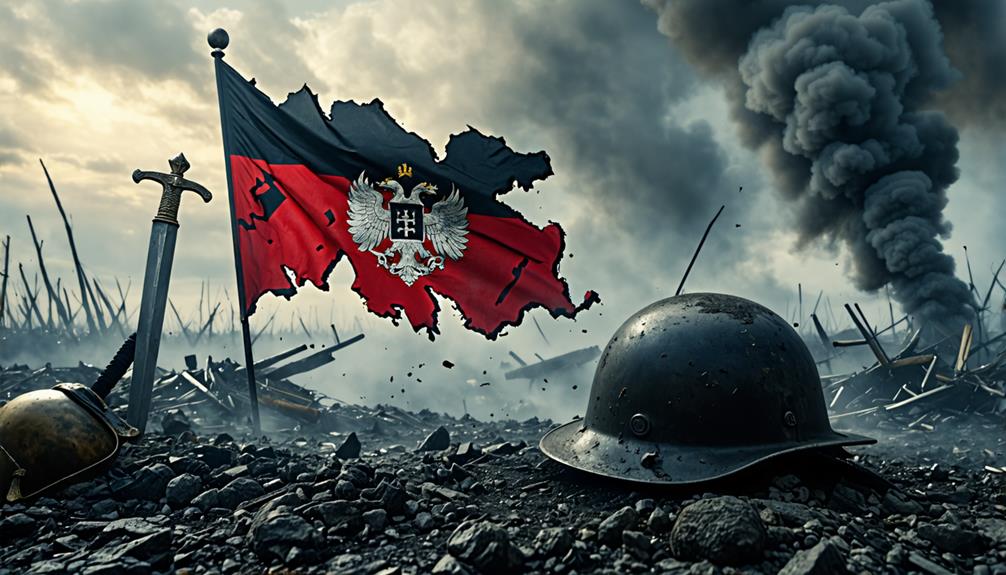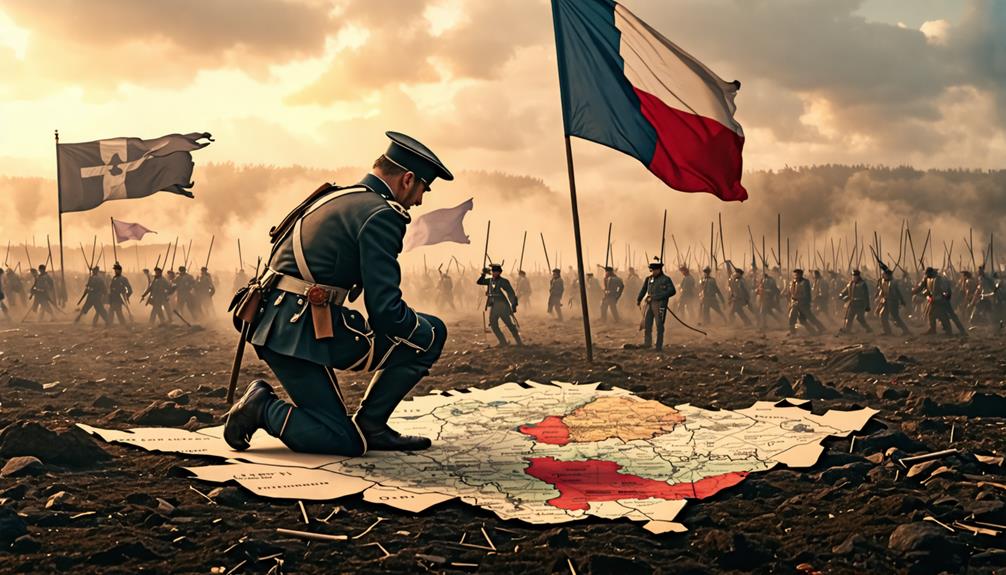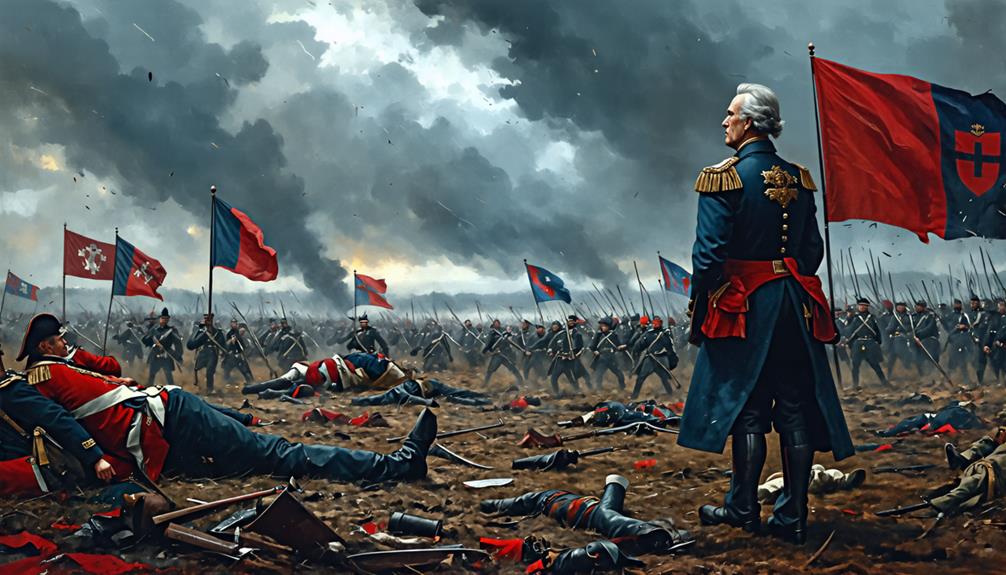The Seven Years' War was a crucial conflict in 18th century Europe. What if Prussia, led by Frederick the Great, had been defeated by the alliance of Austria, France, and Russia?
Such a defeat would have drastically altered the course of European history. Prussia's partition between Austria and Russia could have prevented the rise of a unified Germany, leading to a very different 19th century.
With Prussia defeated, Austria and Russia would be the dominant powers in central and eastern Europe. France, without a strong Prussian rival, could expand its influence across the continent.
This shift in the balance of power would pose a major challenge to Britain's position as the preeminent global empire.
Prussia's Diminished Status

In an alternate history where Prussia's power had diminished by the Seven Years' War, the European balance of power could have shifted dramatically. One theory is that Austria and Russia would have seized the opportunity to partition Prussian territories between themselves, forever altering the map of Central Europe.
It's also possible that a weakened Prussia might've become a vassal state of one of its larger neighbors, such as France or Austria, leading to a very different German unification process in the 19th century.
If a similar scenario occurred later, perhaps with the German Empire after World War I, it could have meant a vastly different 20th century for Europe and the world.
Empowered Austria and Russia
In an alternate historical scenario where Prussia was weakened and unable to balance against Austria and Russia's ambitions, Central Europe's power dynamics during the Seven Years' War era would have been dramatically different.
One theory suggests that Austria and Russia would have seized the opportunity to expand their territories, with Austria potentially annexing Silesia and Saxony while Russia could have gained control over East Prussia and Poland. The long-term consequences of this unchecked growth in Austrian and Russian influence and power at Prussia's expense are open to interpretation.
Although this specific scenario didn't occur, similar events transpired later in history during the partitions of Poland in the late 18th century, where Austria, Prussia, and Russia divided Polish territories among themselves.
It's conceivable that had Prussia been weakened earlier, as described in the alternate scenario, the partitions might've unfolded differently, with Austria and Russia being the primary beneficiaries.
France's Expanded Influence

In an alternate history where France exploited Prussia's weakness, it's possible that French influence would have expanded across Europe. France might've pressured smaller German states to align with its interests, using its alliances as leverage.
With Prussia weakened, France could potentially have become the dominant power in Western Europe, both politically and economically. This scenario might've posed a significant challenge to Britain's power, possibly altering the global balance for an extended period.
It's worth noting that a similar scenario did occur later in history under Napoleon Bonaparte's rule. Napoleon's France conquered much of Europe in the early 19th century, expanding French influence until his ultimate defeat.
Britain's Colonial Dominance
In an alternate history, if France had achieved colonial dominance in the 18th century instead of Britain, it could have led to significant changes in global power dynamics. One theory is that French would have become the dominant language in many parts of the world, potentially replacing English as the lingua franca. The spread of French culture, political systems, and religious influence might've taken root in the colonies.
Interestingly, while France didn't achieve this level of colonial power in the 18th century, it did manage to establish a significant colonial empire in the late 19th and early 20th centuries, particularly in Africa and Southeast Asia. However, the scale and impact of this later French colonial expansion weren't as extensive as Britain's 18th-century dominance.
Altered German Unification

In an alternate timeline of French dominance in the 19th century, the path to German unification could have taken a very different course. With a weakened Prussia unable to lead the charge, it's possible that unification may have been significantly delayed or followed an entirely new trajectory under different leadership.
Some historians theorize that other German states like Bavaria or Saxony might've stepped up to play a more prominent role in this process. It's also conceivable that Germany could have found itself split into northern and southern confederations, each under the sway of different foreign powers.
Interestingly, a few scholars have suggested that a form of German unification might still have occurred in the early 20th century, but perhaps led by Austria-Hungary rather than Prussia. Of course, this would have required a major shift in the balance of power and alliances in Europe.
Conclusion
You're left to wonder how Europe's fate would've unfolded if Frederick's military genius had faltered.
Prussia's partition, Austria and Russia's dominance, France's ambitions – all could have reshaped the continent's destiny.
German unification, Britain's global reach – nothing would be certain.
In a world where Frederick fell, the ripples of change would spread far and wide.
The Seven Years' War was a crucible, and Prussia's defeat would have forged a dramatically different future.

Leave a Reply